|
“Jus' about putting it out there,” Kendrick said, sprawled and leaning back on the empty nighttime bus chairs. “It's like, to keep it, you got to give it away. For anything, respect, money, power–”
“Wow,” I said, slowing down a little through the S-curves. I wanted to make sure I heard his every word. “You gotta give it away to keep it.” “You gotta give it away in order to keep it. I love how you put that in words. Anything.” “Anything,” he murmured, enthusiastically, his shaved bald head glistening under dim fluorescents. “Like with love, it only works if you're giving it–” “If you're giving it. You gotta give it away to keep it.” “Man, I gotta write that down.” I said. “Seriously.” “Man, I want you to meet my daughters. Ah got three of ‘em, three girls. They ain't met you yet.” “I wanna meet em! What are their names again, I remember Kennedy…” “Kennedy, yup, and Paradise, and–” “Yum Yum!” He reeled backwards a little, rich with pleasant surprise. “Yeah, Yum Yum! You remember!!” “Yeah, I was like, how could I forget a name like Yum Yum! How old are they now?” He detailed their ages– I forget who was who, but everyone fell between one and six. “That's beautiful.” “Thank you. Ah been teachin’ em, the first thing I been teachin’ ‘em is respect. Not even earning it, just giving it.” “Just giving it out.” “To everything, life, people…” “That's beautiful, man. And necessary.” “Respect for all things. Iss key.” “Man, Kendrick, it's good that they got– that it's somebody like you that's raising these kids, man. What you bring is valuable.” “Aw, thanks, bro.” “I mean that. It needs to be folks like yourself that's guiding the new... It's about good parents, you know?” We moved on to other things. You wouldn’t guess it by looking at him, he who at first glance might be written off as “another route 7 passenger," whatever that means, or worse. A forty-something street-smart fellow in casual oversized tee and sweatpants with athletic shoes, fistbumping with his fellow OG compatriots. But everyone’s got a story beneath the surface: Kendrick’s undergraduate degree is in plant science and he used to teach horticulture in Louisiana, and now runs a landscaping business. So much for appearances… Our conversation tonight drifted in and out with the rhythms of the bus, went up and onward in its benevolent, ever-rising circles, but the moment of greatest import was for me the beginning. I don't recall quite how we got to whatever inspired his line. You got to give it away to keep it. It overwhelmed what had come previously, and held long after he left. I’d thought of the construct before, sure, but mostly only within the context of romance. Love as an act of giving. Yes. But to expand the idea to something approaching a life philosophy felt freeing in ways I hadn’t anticipated; it seemed imminently more realizable than the forever unsatisfied urge of consumption, acquisition. Buying things is stressful, and its high wears off quickly. But the karmic freedom found in helping others, serving, sharing out good feeling… I’m so glad he got on my bus.
0 Comments
Oh, Denise.
No other phrase encompasses the spectrum of thoughts and feelings I have for this god-forsaken creature. She dared you to hate her, pity her, dismiss her, and love her, sometimes in a single breath. If you walked more than once through Third and Union, Third and Pine, or Third and James, you would have seen her, that wayward daughter of an outcast god, a litmus test of a person who caused in you reactions which revealed more about yourself than her. --- I once spent the better part of an hour chatting with three homeless teens. One of the things I learned was that as a homeless person, it often behooves you to lie. To pretend your circumstances are more dire than they are. Housing and other services get prioritized for those with more extreme hardships, and if you tell them you're schizophrenic and bipolar, for example, rather than (or better yet– in addition to being–) merely thrown out by abusive foster parents, you're going to get a leg up. If you tell those unwitting tourists the bruises on your leg are from something truly tragic, rather than the stupid fall you just had, it might further convince them you're in need. It's a curious position to be in, and one brought on by too many people fighting for the same resources: You're lying in order to emphasize the truth. The thing is, you really do need help. You're on the street. But that's not enough anymore. Everyone's on the street, and your problems are too complicated to explain quickly. How the pain medication from your on-the-job injury has developed over the years into a full-blown hard drug addiction. How the continuous sensation of being treated like dirt because of your race and appearance makes you want to fight the world. The thorny family situation you could return to, but which would actually be worse than being out here, if you can believe it. Or maybe you do have housing, but it's in a roach-infested subsidized building with enough crime and drug issues as to be so far away from anyone's definition of a home that it feels more accurate to just say: you're homeless. It's real and it's dire, the three kids explained to me, but it's too convoluted. People only listen to extremes nowadays. Sure, being homeless and hungry is a big deal for you, but you have to compete with people who actually are suffering the extremes you end up having to pretend, or who really do have the sanctimonious moral fiber you wish you possessed. You need to eat, and they're getting sympathy and solutions from social workers, strangers, and others. Time to come up with a strategy... and maybe not an ethical one. Because ethics are a privilege of those who are doing well. You'll be your good self later. Right now you've got to survive. And thus it begins... --- Denise's strategy is to pretend to cry. Few, if any, street people look as completely, utterly and spectacularly miserable as hers truly. Yes, American homeless people are much better off (and fatter!) than the maimed, deformed and starved shells of humans I've seen abroad, but as far as US streets are concerned, you haven't met Doing Poorly until you've met Denise. How long have those inadequate rotting slippers been on her feet, melded and twisted in her flesh as they are? What actual color is the fabric of her pants? What precious few teeth does she have left, and at what point did her slurred, nigh-incomprehensible torrents of speech become her norm? She reeks less of the expected smells than of a particular brand of topsoil I used to encounter when I drove past a certain construction and landscaping plant in Bellevue. She'd step on board and my nose went right back to afternoons on Northup Way, maybe with a little human putrefaction thrown in. Ah, Pacific Topsoils, Incorporated. It's good to be back... --- Don't get me wrong, dear reader. I like Denise. Street people, especially at the volume and level of mental illness at which we in Seattle now possess, are not an embarrassment of themselves but an embarrassment of the city and the people running it. A naked ignominy of those with the position, power and money to do something constructive... and don't. The homeless person carries a cross of shame belonging less to him than to the society that would pretend his problems don't matter. Any person before you is the result of the cause-and-effect timeline that is their lives, and if you think people end up where they are because of their choices alone, brother, you've lived a charmed existence. Someday life will just happen to you, and you'll shake your fist at your god or your devil, wondering why. It isn't because you're an awful person, my friend. It's just life. --- Denise's body vibrates from withdrawal with a persistence you sense she must not notice, twitching shudders made invisible by their constancy, known only to her as a pain she must fix. It's obvious she's an addict, that she's unattractive, even repulsive, and you know she knows it too; what then is a girl to do for sympathy? This is where the crying comes in. Like the best of actors, she can manufacture tears at the drop of a dime. It's impressive. An unsuspecting commuter will round the corner toward her, and her eyes and lips crinkle and split sideways, instantly at the stage it should take hours of grieving to get to. Watching her perform I sometimes find myself genuinely touched. Who am I, after all, to say how fake those tears are? What great sorrows, hardships of the soul and body, roil beneath her drug-fuelled haze? I happen to know this: that her husband would beat her up in her younger married days, regularly, such that she fell into heavy drinking. --- I first met her during grade school, offering a her a handful of change which she accepted, and from which she immediately picked out the pennies and nickels, throwing them on the ground. At twelve years old, I was disgusted. I'd worked for that money. But she had other problems... Single-minded is a euphemism you think applies to many people, until you know Denise; it's a veritable science, how she's streamlined her actions down. If it doesn't have to do with cocaine, opioids, Red Vines, or Twizzlers, it's not even remotely on her radar (though she did mention Skittles and once, totally incongruously, spaghetti with chicken and marinara sauce...). But crack, mainly. Crack and nothing but. Denise died earlier this month. She died in the dried-up turtle fountain at the northwest corner of Third and Yesler. It's a terrible place to die. Not many will miss her. --- But who will I have conversations with about Red Vines versus black licorice, or the merits of peanut M&Ms? Who will I marvel at as I did her, this strange asexual beast who didn't walk but shuffled, who could shuffle into the busiest street without looking for cars (Denise never looked for cars; far too prosaic for her focuses)... and never get hit? Never? Did she know how she would later be killed, and that it wouldn't be by a car or bus? Is that how it works? I want to believe she had some secret gene, the seer gene, or some sort of invincibility gene that separated her from basically all other hard drug users: she was invincible. There's her, Mick Jagger, and Keith Richards. I swear these people are superhuman. She destroyed her body every day in ways that daily kill many younger souls, but she kept right on into late age. Usually she wasn't able to say much besides the street name containing the project housing in which she lived. "JAMES," she would scream repeatedly, a scream which will echo in many a bus driver's head, including my own, until the end of time. I loved responding with the same word yelled at equal volume, the two of us creating our own echo chamber, the glee in my voice severely befuddling the other passengers. Take things as they are, and make the best of them: I can't solve her problems. But I can yell a duet with her down Third Avenue that confuses people and makes me laugh– with her, you understand, not at her. Wouldn't it be funny if every passenger roared their destination stop with guttural force, saying little else? --- Her strategy for absorbing life's blows was to turn away. Addiction provided a solace she was unable to find elsewhere, and before it claimed her life she lived in a hidden place of her own mind's making. It was far away, this place, some other planet, but it was just near enough for me to hear her yelling James, and for me to yell back. Denise always threw in a few coins for bus fare– perhaps vestiges of a childhood in which she was taught to pay her way. I now realize that the coins she tossed in the farebox were pennies and nickels; she found a use for those things after all, alongside the fact that twenty years on, she's paid me back in a way. Not that the fare matters much. Sometimes I'd get a sentence or two of conversation besides out of her– I always tried– and blushed when she'd croak, "YOU TH' NICE BUS DRIVUH. YOU KIND." Yes, her spittle would come flying at me in ways I didn't particularly appreciate. And yes, I don't exactly love being involuntarily inundated with the smell of Pacific Topsoils, Incorporated. But I will think of the young woman who lived inside her, deep down and far away, the newlywed who didn't want to get beaten, didn't want to go home, couldn't stand the pain. Who hurt. Emotional pain hurts worse than physical pain, and domestic abuse cuts deep because it is both emotional and physical. She was the girl who had no one to turn to, and looked for answers in all the wrong places. It doesn't matter if those tears were real or fake. There was a reason they were there. This lil' thing just keeps chugging– thanks to you. We've printed a third run of books, in conjunction with my recent TED talk (which will be online shortly; stay tuned!). If you've already bought a copy, Thank You!! Tell your friends, your bookstores, book reviewers and others! It'll be a while yet before this little endeavor is actually sustainable– even when considering how phenomenally it's been doing.
That's not just because books are a terrible way to get rich. It's because I'm Nathan and I can't help myself, in that the focus from day one has never been profit. When you leave the artists in charge of everything, it's never about the money, for better or worse... This was always about making the best possible item we could for you, the reader. This book is about that level of quality but also about something else, something deeper. I used to scoff at material objects– especially the buying of material objects– in a way that I've cooled down on in recent years. Because objects outlast loved ones. They live longer than people, and carry with them the bodied memories of a thousand ordinary days, the days when that person still wandered about the house, called you, whisper-chuckled in your ears. Objects stick around, long after your friend, grandparent, whomever– has drifted out of your life, whether by death or something smaller, heartbreak maybe, or just moving away. A friend once mailed me a letter (yes, young people still do that!) that included a handwritten copy of Pablo Neruda's poem, "Things." It's a celebration of physical objects, and at the time I thusly disregarded it. Who needs objects when you've got people, human souls to connect with? Well. I've been learning what my older friends already know. Humans don't always stick around, even when they desperately want to. We feel the unsolvable gnawing questions of God and Death and Time, and we, all of us, act accordingly. Some will tell you the organizing principle behind everything humans do is sex. Or love. Or loneliness. But all of those sit broadly at the root of something larger. Death, Don Delillo wrote, is the motivating factor for all human action. Meaning the act of life, and specifically the recognition of its fragile preciousness. The urgency of it, of our being here. Why did I begin creating with such urgency in the last five years? The blooming of the blog, the mad rush of photography, the large-scale darkroom printing, the book and everything it entailed, my upcoming film and everything that involved, the various radio, print and television placements, the awards at work and at large... What else would you do, friend, if you were in a terrorist attack, and then survived? "Tell us about Paris," a friend in the audience asked during my Elliot Bay author Q&A. I'll be giving incomplete answers to the fallout of that event for the rest of my life. I'll post the video of that talk soon as well, and you'll notice how uncertain I am as I fumble about for an answer, something succinct. This is how I might answer now: Life has urgency for me now, and I fight its fragility by creating. This fight will always be a losing fight, Sisyphean in a way, pathetic from a certain angle; but I welcome that futility, and all the growth that comes with it. It means I will never tire of making art, trying to be good, kind, loving– the ultimate art act of existence is how we live life. In the face of death, I create. I infuse my art with everything I've got, everything I've learned and gathered, such that I might be able to throw a beam of light into the void, for a flicker of a moment. As I say above, this book was never about the money. Debut authors don't always find it strangely necessary to have their books printed on photo-quality paper, with offset-printed covers, blurbs from major local luminaries, or come graphic-designed to within an inch of their lives, until you have what is basically a non-fiction coffee-table conversation art piece masquerading in the shape of a novel... But our book is all of these things, because we pulled out all the stops for you. The generosity of spirit that's come my way via the blog all these years demands it. But more deeply, more profoundly even than that, is the Urgency. To pour my absolute best, every single solitary thing I've got, into something I can gift to you, something that will live on your shelf or someone else's, in your mind, maybe your heart, for longer than I will be able to live on this earth. Objects. They carry secrets like I never knew. --- Buy the book here. More on the book here. Nathan on the Elliott Bay author event: Parts I, II, and III. He had one of those 'normal' names. Mono– or duo-syllabic, from the Western tradition: Christian, Jewish, something. Paul. Eric. You know. The kind I can never remember... and also the kind that humanizes a downtrodden face. All names do that, but it's the ones we grew up with that double up in our mind, sandwiching in between the déjà vu of older memory.
I knew a lot of Erics as a child, grew up around Michaels and Matthews and Carlos's, but never one with a face this scruffy, shaggy, stubbly, brow-beaten, aged, hollow, and slight. None of the Erics I sat next to in school dragged around a garbage bag large and lugubrious enough for me to fit inside of– or at least, not yet. This Eric did, though, and I was sorry to have forgotten his name, because he remembered mine. I'll have to build up the nerve to ask him again– again– someday. His voice was raspier than a Leonard Cohen buzzsaw, and his name, ordinary as it was, served as a reminder that he was as we are, regular folks trying to make something of ourselves, for a month or for an hour. "Hey. I went to Georgetown today," he said. It sounded incongruous, such an innocuous statement declared so hoarsely, from such a scarred, battered, nigh war-torn visage. His was the face you'd have from leaning into a hard wind for six decades. But beneath that gravel-shredding guttural croak: hear the friendliness in his tone! "That's cool," I said. "I'm going to apply for a job down there. I got a paper application." "That's right!" I replied, my memory jogging to life. "You got all kinds a stuff going on. Last time we talked I remember you were takin' class somewhere." "Yeah I am." "Sweet. What classes are you takin' again?" "Accounting, I'm doing accounting, gardening-" "Gardening that's right–" "And woodworking. I don't wanna spend the rest of my life wearing a coat downtown, collecting cans." "Gets kinda old after a while." "Yeah. Plus you only make $67 a day. I'm gonna do building maintenance. Sweeping the floors, fixing up the bathrooms, changing light bulbs and stuff." "I like that kind a work," I said, without irony. "Working with your hands. Feels good, like you're really doing something." "Yeah. It'll be good," he said. "I was a janitor before." "Oh you'll get it then, you got prior experience." "Hope so. Anyways. I'll let you drive. I thought I would tell you that though. I'm going up to Wenatchee next week." "What's in Wenatchee?" "It's my hometown." "Oh cool. How's the weather up there these days?" He wasn't a homeless person. He was a homeless person with an interest in gardening, who'd been a janitor, was enrolled in classes... who spent nights planning, musing on the future. Who thought about his hometown. How many others coming upon his streetraggled form tonight will know of his secrets? What will they miss? Or will they have their kind eyes on, the eyes to see all this man is, was, and might ever be? "Go get 'em," I said, as he left. He grinned. What can I say but thank you: to the lovelies who organized the whole thing, who invited me not just to take part but to be the closing speaker;
To the giants pictured above and elsewhere, for letting me crash their party and speak alongside (more on each of them here)! To my friends who've TED talked before, who coached my speech into something actually worthwhile. Bill Bernat's talk about "how to talk to your depressed friends" crossed 1 million views a long time ago, and his comprehensive site (how can you resist a URL like stayawesome.com?) only scratches the surface of all his presence has to offer. Paul Currington has MC'd TED events, coached numerous TED speakers, and produces Fresh Ground Stories, the best event of its kind for many reasons. Both of these friends regularly give talks that have the power to change lives. Let's be honest here. Without Paul and Bill and their expert ideas and finesse, so generously given, I wouldn't be where I am. To the people close to me, who kindly listened as I practiced it with them, innumerable times– at different volumes, paces, in different rooms, with music playing, while driving, while facing different directions... We did everything. I wrote the speech down by hand from memory. I recited it while turning around. While whispering. Shouting. With radio and television going. While groggy and sleep-deprived. While hungry. While needing to use the restroom. The better to simulate the circumstances: you may not know that a scheduling snafu on my end resulted in my giving the TED talk just hours after landing from a red-eye flight from Houston! And not merely after a night of no sleep, but two nights of no sleep– I was only down there for twenty hours, and red-eyed it both ways. Why, Nathan? Why do you do stuff like that? For the love of art and life, and everything in between. I'm grateful for every person on the TED team who worked to make things easier, let alone possible, for me to participate in spite of my ridiculous schedule. Gosh, I love these guys (meet the team here). What an honor to be on the receiving end of such care and enthusiasm. How could I not give them my all? Practicing the speech while showering, doing crunches, cooking noodles, parallel parking... My speech is about being kind to strangers. The strangers running the UW TED were so kind to me they stopped being strangers almost immediately, and it's thanks to their good graces that any of this happened at all. And of course, the final thanks must go to you, who took an interest, came and listened, or watched online. We exist because of you. You take the ideas of these wonderful speakers and germinate them out into the world, sculpting them with your own experience. We'd be talking to ourselves in empty rooms were it not for you. Thank you. The speech will be online shortly. I'll keep you posted. Also, my book lives!! A third printing has just been completed!! More on that in a moment. I'm off to pick up the boxes now... |
Nathan
Archives
July 2024
Categories |
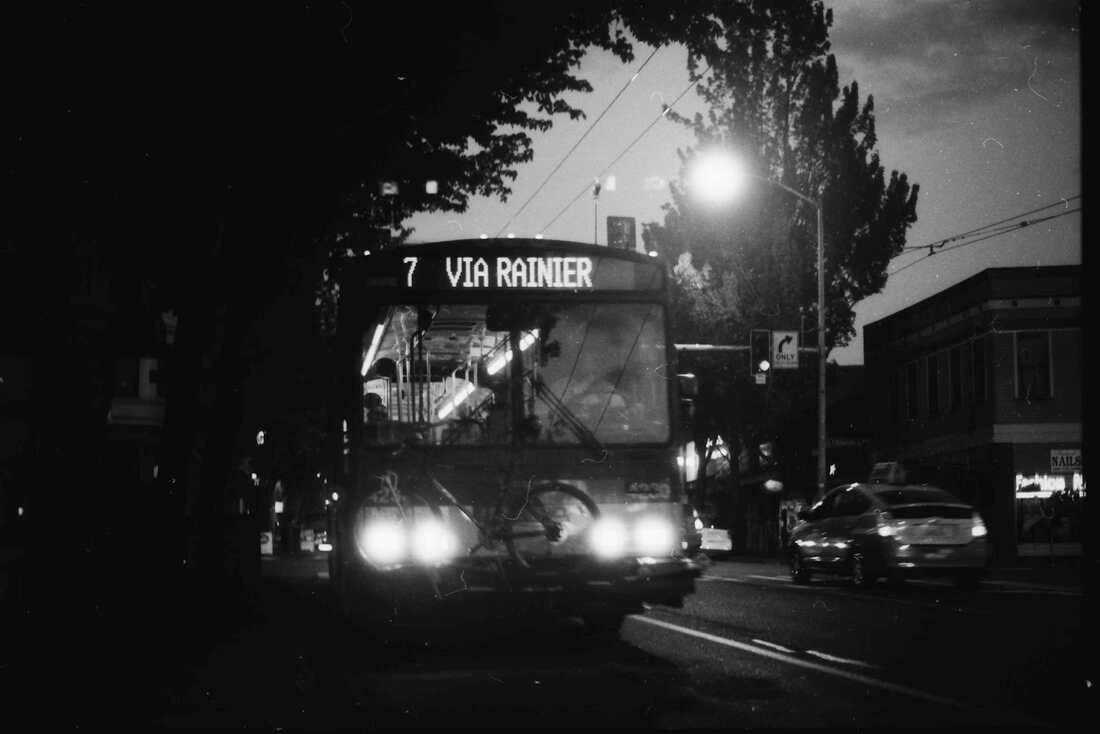
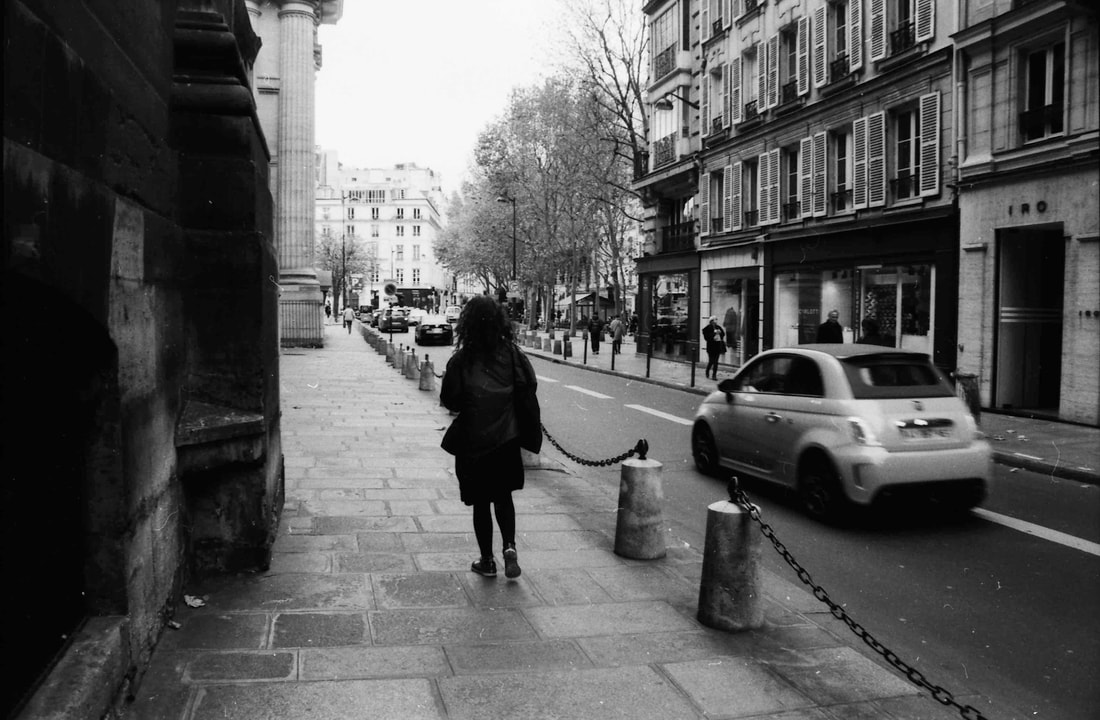
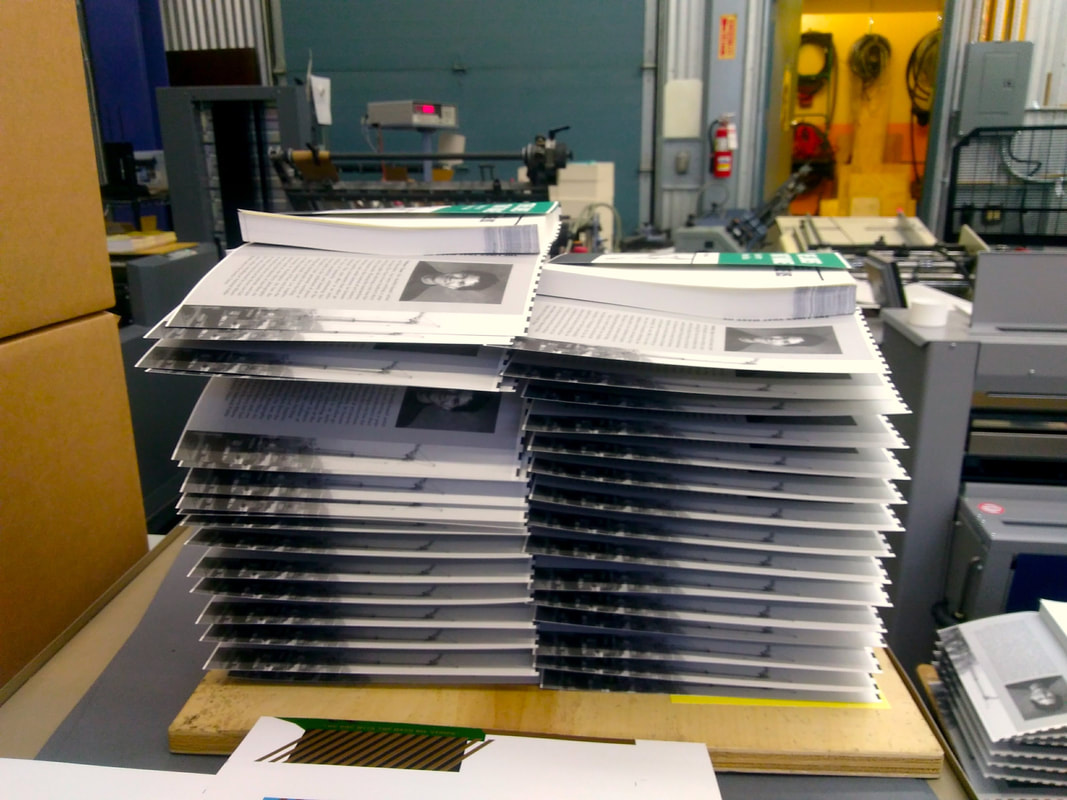
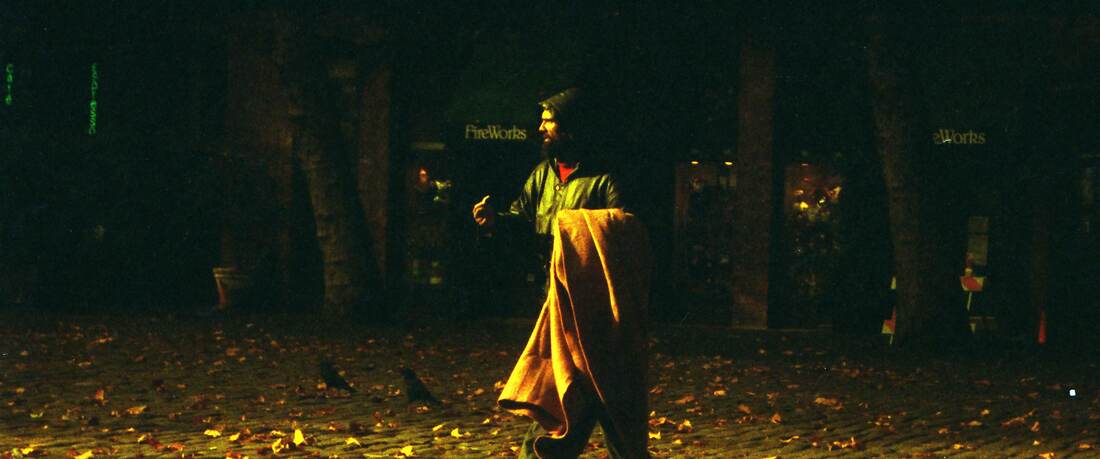
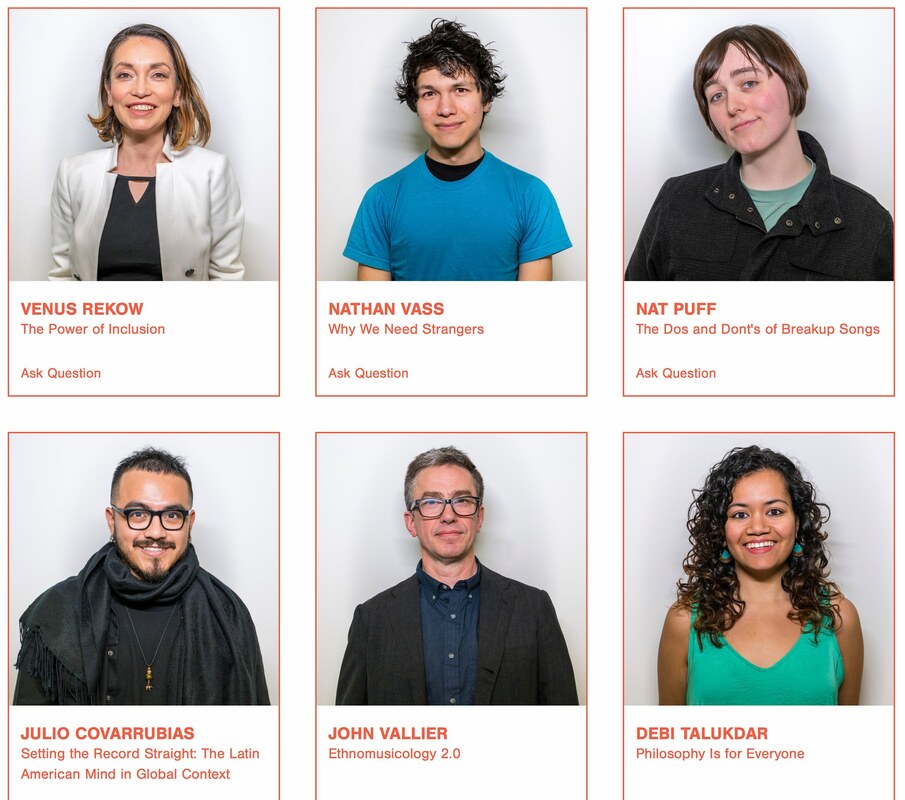
 RSS Feed
RSS Feed
